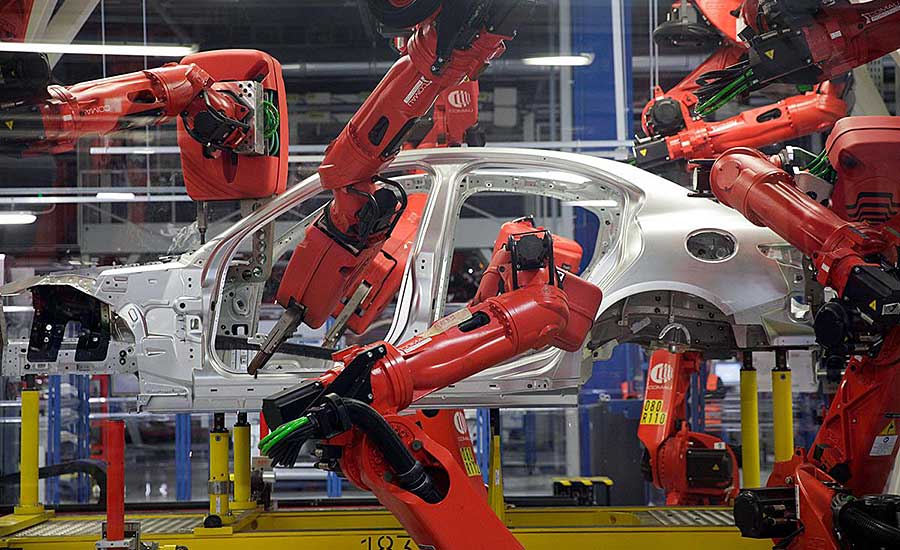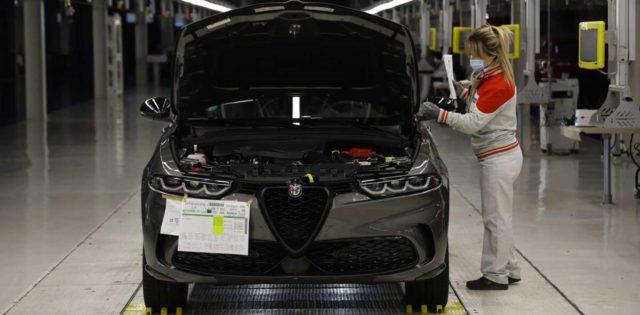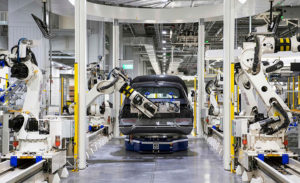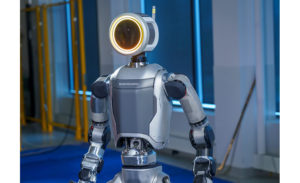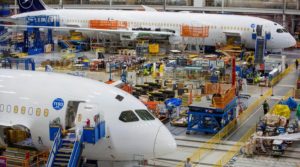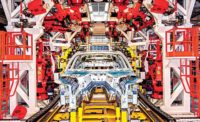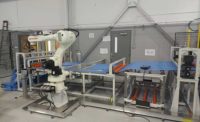Alfa Romeo introduced the Tonale, a compact crossover SUV, in February 2022. It’s Alfa’s first hybrid vehicle, and it’s the first new model introduced by the brand in six years.
Available in a choice of two trim levels, the Tonale features a 160 hp, 1.5 liter gasoline engine paired with a seven-speed dual-clutch transmission. The electric drive is powered by a 48 volt, 15 kilowatt, 55 newton-meter electric motor that can power the car even when the engine is not running.
Readers of the German car magazine Auto Motor und Sport chose the Tonale as the “Best New Design 2022” in the compact SUV category.
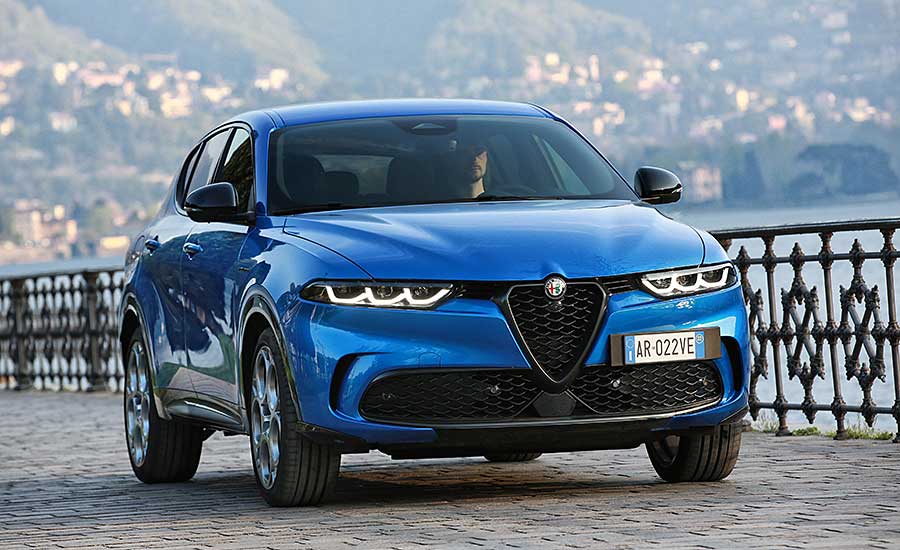
The Tonale is built at Alfa’s historic assembly plant in Pomigliano d’Arco, a suburb of Naples, Italy. Known as Stellantis Pomigliano (after Alfa’s parent company) or the Giambattista Vico plant (after the 17th century Neapolitan philosopher), the factory was commissioned in 1968 and began production in 1972. Since then, the factory has produced some 5 million cars, including the Alfasud and the Alfa 159.
The factory has won numerous international awards over the years, including a World Class Manufacturing (WCM) silver medal in 2012, the Automotive Lean Production award for best plant in Europe in 2012, and a WCM gold medal in 2013.
In 2021, the plant underwent a major refurbishment to produce the Tonale. Robot manufacturer and systems integrator Comau got the job. Tasked with building five completely new lines and retooling 15 existing lines, Comau completed the work in record time.
The task was a challenge from the beginning. The factory had been making the Fiat Panda, a popular compact car, since 2011. Now, Alfa wanted to add production of the larger Tonale without disrupting assembly of the Panda. Through simultaneous engineering, engineers designed a transformation strategy that allowed Comau to execute the retooling operation in parallel with existing activities, according to Alfa’s “zero-loss launch” philosophy. Comau also worked on the lines during the plant’s natural downtime, thus minimizing any impact on production.
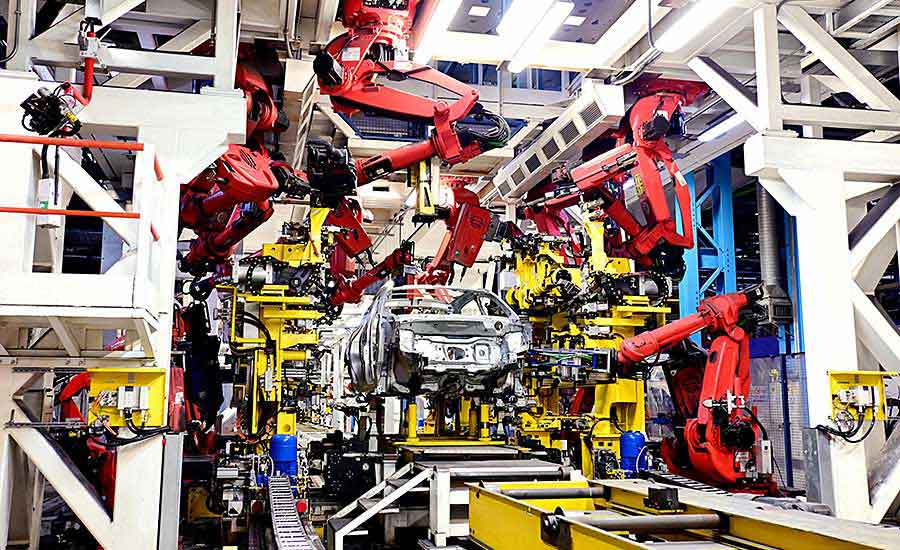
The Butterfly
Another challenge was the size difference between the Tonale and the Panda. Comau’s proprietary ComauFlex technology solved that problem. Nicknamed Butterfly due to its agility and its use of suspended robots, ComauFlex allows Alfa Romeo to change or modify a specific vehicle model by adjusting the robot tooling, not the arrangement of the robots themselves. In addition to protecting the scalability of the Alfa’s initial investment, the technology enables the introduction of new models in the future for a fraction of the initial expenditure.
The entire system features 468 welding robots, of which 148 are new and 320 came from existing lines. Comau used advanced simulation tools during development to ensure quality and throughput.
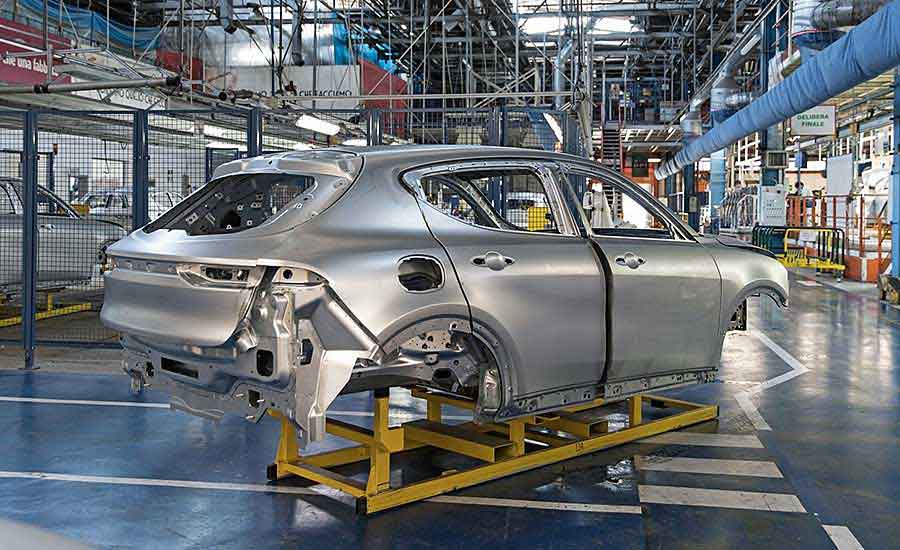
The refurbished line assembles the entire body-in-white from start to finish, performing complex processes with precision. With the aid of three vision systems to aid the automated picking and positioning of pieces, the robots weld, fasten and dispense adhesive. They also perform plasma cutting operations. All totaled, the process involves roughly 2,800 spot-welds for each model.
With significant net output, Alfa Romeo can bank on substantial savings in terms of time, long-term costs and production efficiencies. Moreover, because the line is a fully modular system built around standard products that are combined within an expandable design framework, the automaker can quickly expand its manufacturing environment with limited impact on existing production.

“To join forces with a prestigious brand such as Alfa Romeo is an incredible opportunity to develop cutting-edge technologies, and we are proud to see the tangible results of Comau’s field-proven expertise,” says Pietro Gorlier, Comau CEO. “Our commitment to unwavering quality is seen within the processes and products used to make the Tonale, enabling us to ensure maximum value for the customer.”
“In supporting the Alfa Romeo brand in their product expansion, Comau has fully leveraged its long-standing experience in automation and smart manufacturing to deliver an unprecedented level of flexibility,” adds Andrew Lloyd, Comau’s chief of engineering. “This innovative approach to implementing brand-new technologies and retooling existing lines and equipment is a direct result of our commitment to offer increasingly scalable and sustainable solutions, helping our customers better meet their objectives today as well as tomorrow.”
